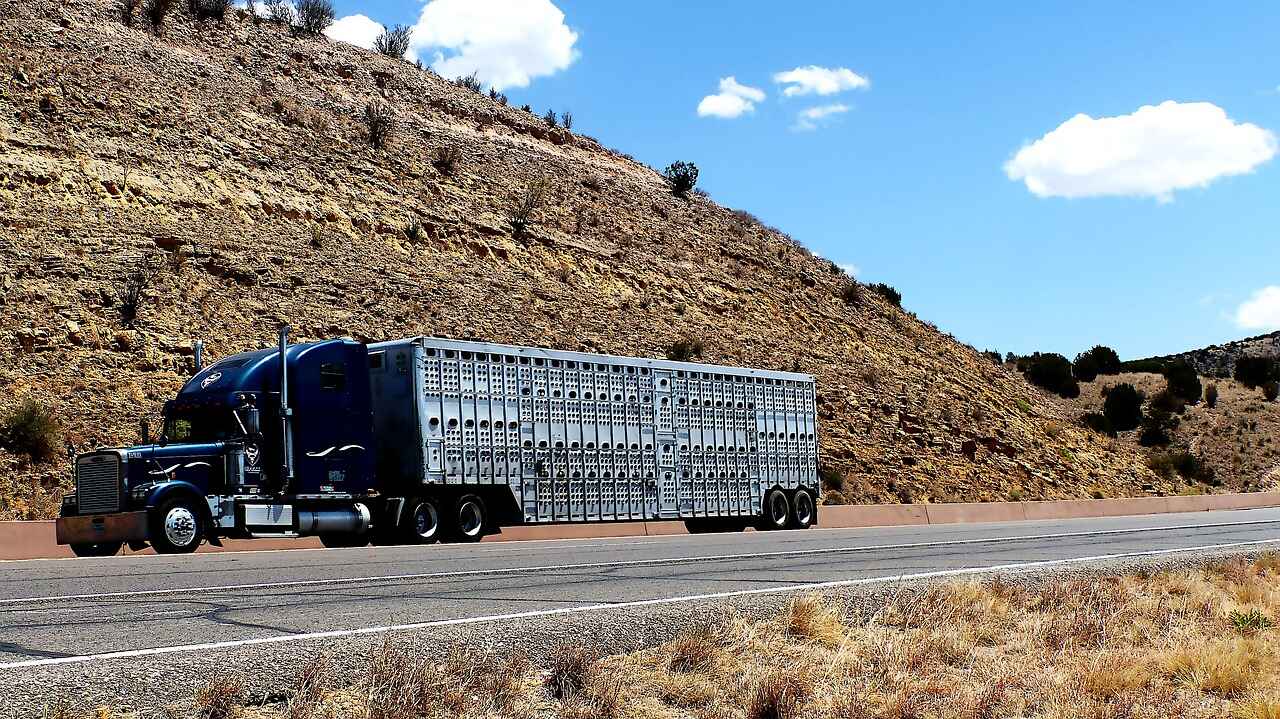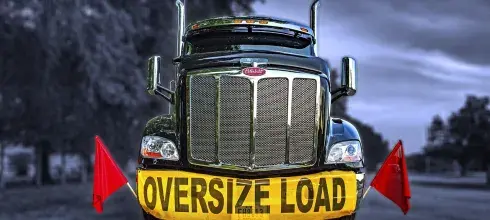Car carrier vehicles, often referred to as car haulers or transporters, are specialized trucks designed to move vehicles from one location to another. These vehicles are the backbone of the auto transport industry, providing a crucial service for individuals, dealerships, manufacturers, and businesses alike. Whether you’re relocating, buying a car online, or transporting multiple vehicles for commercial purposes, car carriers ensure that your vehicles reach their destination safely and efficiently.
Given their importance, it’s essential to understand the various types of car carriers available, their specific uses, and the safety measures and regulations that govern their operation. This guide aims to provide comprehensive information on everything you need to know about car carrier vehicles. From the different carrier options and their applications to the safety tips and regulatory standards that ensure secure transport, this guide will help you make informed decisions regarding vehicle transportation.
Types of Car Carrier Vehicles
Understanding the different types of car carrier vehicles is crucial when deciding how to transport your vehicle. Each type of carrier offers unique benefits and is suited to specific transport needs. Here’s a breakdown of the most common types of car carrier vehicles used in the auto transport industry:
Open Carriers
Open carriers are the most common type of car transport vehicle and are widely used for transporting standard vehicles. These carriers typically have two levels and can transport anywhere from 7 to 10 cars simultaneously. Although open carriers leave vehicles exposed to the elements, they are a cost-effective and efficient option for most transport needs.
Pros:
- More affordable than enclosed carriers
- Availability is higher, making it easier to schedule transport
- Suitable for most standard vehicles
Cons:
- Vehicles are exposed to weather conditions, road debris, and potential damage
- Not ideal for luxury, classic, or high-value vehicles
Enclosed Carriers
An enclosed car-carrying vehicle offers offer a more secure and protective environment for vehicle transport. These carriers are fully enclosed, shielding vehicles from the elements and other external factors. They are typically used for transporting luxury, classic, or high-value vehicles that require extra care.

Advantages:
- Provides maximum protection from weather and road debris
- Ideal for high-value, luxury, or classic vehicles
- Reduces the risk of damage during transport
Disadvantages:
- More expensive than open carriers
- Limited availability and often requires advanced booking
Single vs. Multi-Carriers
Carriers can also be categorized by the number of vehicles they transport. Single-vehicle carriers are designed to transport just one car, offering personalized and dedicated service. Multi-vehicle carriers, on the other hand, transport several vehicles at once.
- Single-vehicle car carrier truck is best for transporting a high-value vehicle with the utmost care or when time-sensitive delivery is required.
- Multi-vehicle car carrier trailers are ideal for the cost-efficient transport of multiple vehicles, whether you’re moving several cars at once or sharing the carrier with other customers.
Choosing between these types depends largely on your specific transport needs, budget, and vehicle protection requirements.
Uses of Car Carrier Vehicles
Car carrier vehicles play a vital role in a variety of transportation scenarios, serving both personal and commercial needs. Whether you’re relocating across the country or running a dealership, understanding the different uses of car carriers can help you choose the right service for your situation. Here’s how car carrier vehicles are commonly utilized:
Personal Vehicle Transport
Carriers are frequently used by individuals who need to move their personal vehicles over long distances. Common scenarios include relocating to a new city, purchasing a car online from a distant location, or sending a vehicle to a vacation home. Car carriers offer a convenient and reliable way to ensure your vehicle arrives safely without the hassle of driving it yourself.
Commercial Vehicle Transport
In the commercial realm, car carriers are essential for dealerships, auctions, and manufacturers. Dealerships rely on these vehicles to deliver new cars from manufacturers or transport used vehicles from auctions to their lots. Manufacturers use car carriers to distribute newly produced vehicles to various locations across the country. This service ensures that vehicles are delivered in bulk efficiently and cost-effectively, keeping inventory flowing smoothly.
Specialty Transport Services
For exotic, vintage, or custom vehicles, specialized car carriers are often employed. These high-value vehicles require extra care during transport, which is why enclosed carriers are commonly used in this context. Whether it’s moving a classic car to a car show or transporting a custom-built vehicle to its new owner, specialty transport services ensure that these prized possessions are protected throughout the journey.
Car carrier vehicles are versatile and essential in both personal and commercial transport scenarios, providing tailored solutions to meet a wide range of needs.
Safety Tips for Car Carrier Vehicles
Ensuring the safe transport of vehicles is a top priority for both car owners and transport companies. Whether you’re shipping a personal vehicle or overseeing a fleet, understanding the safety measures involved can make a significant difference in the overall experience. Here are key safety tips to consider when using car carrier vehicles:
Preparing Your Vehicle for Transport
Before your vehicle is loaded onto a carrier, it’s important to take a few preparatory steps. Start by thoroughly cleaning your car, both inside and out, to make any existing damage more noticeable during inspection. Remove all personal items and valuables from the vehicle, as these are not typically covered by transport insurance and can shift during transit, causing damage. Ensuring your car is ready for transport helps prevent potential issues and contributes to a smoother shipping process.
Understanding Insurance Coverage
Insurance is crucial for protecting your vehicle during transport. Most reputable auto transport companies offer basic insurance coverage, but it’s important to understand what is included and whether additional coverage is needed. Reviewing your insurance options provides peace of mind, knowing that your vehicle is financially protected against any unforeseen incidents during its journey.
Carrier Inspection and Maintenance
Transport companies play a critical role in maintaining the safety of car carrier vehicles. Regular inspections and maintenance ensure the carriers are roadworthy and capable of securely transporting vehicles. This includes checking the integrity of tie-down mechanisms, ensuring the carrier’s tires and brakes are in good condition, and verifying that all lights and signals are functioning properly. A well-maintained carrier reduces the risk of accidents and ensures that vehicles arrive at their destination in the same condition they were loaded.
By following these safety tips, both car owners and transport companies can contribute to a safe and successful vehicle transport experience.
Regulations Governing Car Carrier Vehicles
Car carrier vehicles operate under a strict set of regulations designed to ensure safety, reliability, and accountability in the auto transport industry. Understanding these regulations is essential for both transport companies and customers to ensure compliance and smooth operations. Here’s an overview of the key regulations governing car carrier vehicles:
Licensing and Certification Requirements
Car carrier companies and their drivers must adhere to specific licensing and certification requirements. Transport companies need to have appropriate operating authority from the Federal Motor Carrier Safety Administration (FMCSA), which ensures they meet federal standards. Drivers must possess a commercial driver’s license (CDL) with endorsements for operating large carrier vehicles. These certifications confirm that the carrier and its operators are qualified to handle vehicle transport safely and professionally.

Weight and Size Restrictions
Carriers must comply with legal limits on vehicle dimensions and weight. These restrictions vary by state but are generally regulated to ensure that the carrier vehicle does not pose a hazard on the roads. Overloading or exceeding the size limits can lead to fines, delays, or even accidents. Transport companies must carefully calculate the combined weight of the carrier and the vehicles being transported to stay within legal limits.
Compliance with Safety Standards
Car carrier vehicles are subject to rigorous safety standards at both federal and state levels. This includes regular inspections to ensure that the vehicles meet safety requirements such as proper securing mechanisms for transported cars, functional braking systems, and adherence to load limits. Compliance with these safety standards is crucial for preventing accidents and ensuring that transported vehicles reach their destinations without damage.
By adhering to these regulations, car transport companies not only ensure legal compliance but also enhance the safety and efficiency of vehicle transportation services.
Choosing the Right Car Carrier Service
Selecting the right car carrier service is a critical decision that can significantly impact the safety and efficiency of your vehicle transport. With numerous options available, it’s important to make an informed choice based on key factors such as cost, timeframe, and service quality. Here’s what you need to consider when choosing a car carrier service:
Factors to Consider (Cost, Timeframe, Service Quality)
When evaluating car carrier services, consider the overall cost, including any hidden fees that may arise. Balancing cost with the level of service provided is crucial—cheaper options may not always offer the best quality or timeliness. Assess the timeframe for delivery to ensure it aligns with your schedule, and consider the service quality, which includes the care taken in handling your vehicle and the professionalism of the carrier.
Researching and Comparing Carriers
Before committing to a service, it’s essential to research and compare different car carrier transport companies. Look into each carrier’s credentials, such as licensing, insurance, and years of experience. Compare their service offerings, availability, and pricing to determine which company best suits your needs. Checking whether the carrier specializes in the type of transport you require (e.g., enclosed transport for luxury vehicles) can also guide your decision.
Reading Reviews and Testimonials
Customer feedback is invaluable when choosing a car carrier service. Reading reviews and testimonials can provide insights into the experiences of others who have used the service. Look for patterns in feedback—consistently positive reviews about punctuality, communication, and care in handling vehicles can be a strong indicator of reliability. Conversely, multiple negative reviews on similar issues should be a red flag.
By carefully considering these factors, you can select a car carrier service that meets your needs and ensures a smooth, worry-free transport experience.
Conclusion
Car carrier vehicles play a crucial role in the auto transport industry, offering various options to meet different transport needs, from open and enclosed carriers to single-vehicle and multi-vehicle carriers. Understanding the types, uses, safety considerations, and regulations governing these vehicles is essential for making informed decisions. Whether you’re transporting a personal vehicle, managing commercial shipments, or dealing with specialty transports, selecting the right car carrier service can make all the difference in ensuring your vehicle arrives safely and on time.
When choosing a car transport service, it’s important to evaluate factors such as cost, timeframe, and service quality, as well as to research and compare carriers based on customer reviews and testimonials. Making informed decisions will help you select a service that aligns with your needs and provides peace of mind.
For professional and reliable car carrier services, we encourage you to contact SGT Auto Transport. Our experienced team is dedicated to delivering top-quality service, ensuring your vehicle is transported with care and efficiency. Let us handle your car transport needs with the expertise you can trust.







